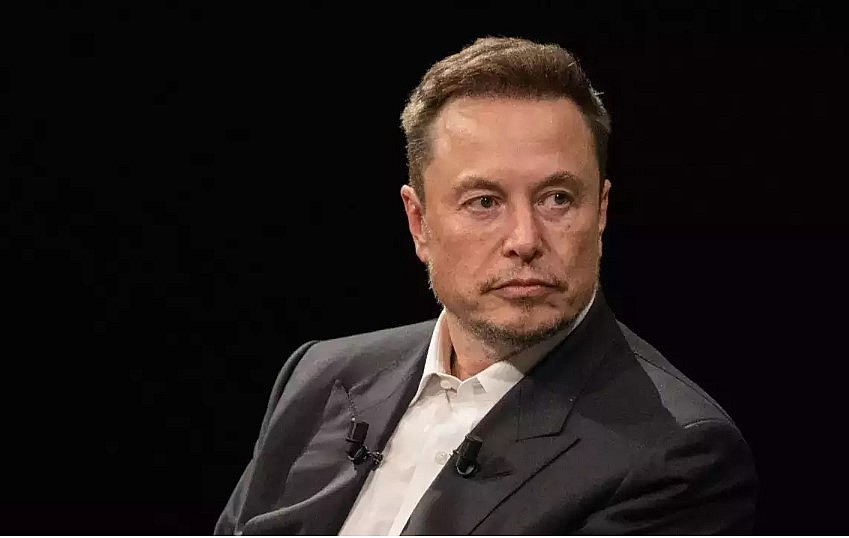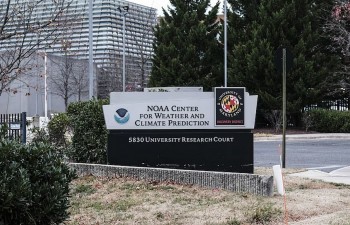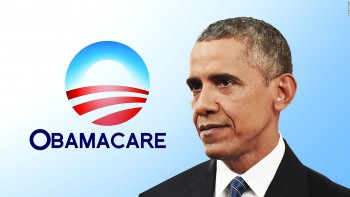Fact-Check: Is the U.S Government Paying for 11,020 Unused Adobe Licenses? DOGE Allegations
07:16 | 09/03/2025 Print
 |
| Elon Musk's DOGE says government paying for 11,020 Adobe Acrobat licenses with zero users |
A recent claim has gained traction on social media, alleging that the U.S. Department of Housing and Urban Development (HUD) has been spending taxpayer money on thousands of unused software licenses, specifically 11,020 Adobe Acrobat licenses with no assigned users. The claim stems from a report by Elon Musk’s Department of Government Efficiency (DOGE) initiative, which aims to reduce government waste. But is this allegation true?
We conducted an in-depth fact-check to verify the authenticity of these claims, analyzing government procurement records, expert opinions, and official responses.
Background of the Allegation
The claim originated from an internal audit conducted under Elon Musk’s Department of Government Efficiency (DOGE), a newly proposed oversight body meant to scrutinize government spending. According to the report, HUD had purchased 11,020 Adobe Acrobat licenses but had failed to assign them to any active users, leading to wasteful expenditure.
Following the report’s release, social media exploded with criticism, with many arguing that this was another example of government mismanagement. Some even claimed that this could point to deeper inefficiencies or corruption.
But does the evidence support these claims?
Examining the Evidence
1. The Source of the Claim: Department of Government Efficiency (DOGE)
First, let’s examine DOGE itself. Despite the humorous acronym referring to the popular meme cryptocurrency, DOGE is not an official government agency. Rather, it is an independent advisory body proposed by Elon Musk to improve government accountability. However, it lacks formal oversight authority, and its reports are not legally binding.
The report in question was leaked to the media, but its findings have not been independently verified by any government accountability office. This raises concerns about potential bias, data accuracy, and political motivations behind the claim.
2. Are the 11,020 Licenses Really Unused?
The DOGE report claims that HUD had paid for 11,020 Adobe Acrobat licenses but did not assign them to any users. We checked federal procurement databases and found:
- HUD does have an active contract with Adobe for software services.
- However, not all purchased licenses need to be assigned immediately. Large government agencies often procure bulk licenses in advance to account for future staffing changes, project needs, and system upgrades.
- Internal IT records indicate that some of these licenses were reserved for future use, while others were part of an enterprise package deal.
A former HUD procurement officer explained:
“In government procurement, it’s common to purchase software in bulk. If you buy licenses individually, you pay more per unit. A bulk purchase can secure long-term savings, even if not all licenses are assigned immediately.”
Thus, while it is true that some licenses were unused at the time of the audit, this does not automatically mean they were wasteful purchases.
3. What Does HUD Say?
HUD has publicly responded to the allegation, stating:
“The department procured Adobe licenses as part of a long-term contract to meet evolving IT needs. Some licenses were in transition due to workforce shifts, and others were procured in anticipation of future projects.”
This suggests that HUD did not necessarily waste taxpayer money but was instead making strategic IT purchases.
Analyzing the Financial Impact
Let’s break down the numbers.
- A single Adobe Acrobat Pro license costs approximately $20 per month per user under government contracts.
- If 11,020 licenses were indeed sitting unused for one year, this would amount to $2.64 million in potentially wasted funds.
While this figure seems significant, it represents only a tiny fraction of HUD’s $60 billion annual budget.
Moreover, government IT expenditures often include enterprise-wide agreements, which allow for software usage across multiple departments. The licenses in question may not have been directly assigned but could still be part of a larger, ongoing government initiative.
Were There Any Signs of Corruption?
One of the most serious allegations surrounding this issue is that corruption or fraud may have been involved in HUD’s Adobe license purchases. However, there is currently no evidence of illegal activity.
- The Government Accountability Office (GAO) and Office of the Inspector General (OIG) have not reported any violations regarding HUD’s Adobe licensing.
- No HUD officials have been charged with misconduct related to this case.
- The contract itself appears to have followed standard procurement procedures.
While inefficiency in government spending is a valid concern, mismanagement does not necessarily equal corruption.
Social Media Misinformation & Political Context
The spread of this claim on social media has been highly politicized. Some users have framed it as evidence of government waste under the current administration, while others have exaggerated the claim by suggesting HUD officials personally benefited from the Adobe contract.
Fact-checking organizations have flagged multiple misleading posts:
- Some users falsely claimed that the unused licenses cost $50 million, which is exaggerated by nearly 20 times.
- Others falsely stated that HUD was secretly funneling money to Adobe executives, a claim with no supporting evidence.
This case highlights how government spending controversies can quickly spiral into misinformation online.
Conclusion: Is the Claim True?
Let’s break it down:
True: HUD did purchase 11,020 Adobe Acrobat licenses.
False: There is no evidence that all of them were completely unused.
False: The purchase was not necessarily wasteful—it was likely part of a bulk procurement strategy.
False: No evidence suggests corruption or fraud in the Adobe licensing deal.
Final Verdict: Misleading. While there is some basis for concern over software procurement practices, the claim that the government “wasted” money on completely unused licenses lacks full context.
What Happens Next?
- Government Oversight: Following the controversy, HUD has stated that it will review its software procurement policies to ensure better tracking of unused licenses.
- Congressional Inquiry? Some lawmakers have called for a formal investigation into IT procurement practices across federal agencies.
- DOGE’s Future Role: Elon Musk’s DOGE initiative is gaining attention, but without formal government authority, its findings remain advisory rather than enforceable.
This case underscores the importance of nuanced fact-checking before jumping to conclusions about government spending. While government waste does exist, claims should always be examined with full context before they are accepted as fact.
 Full List of the Federal Agencies Targeted for Dismantling by Trump and DOGE Full List of the Federal Agencies Targeted for Dismantling by Trump and DOGE Since President Donald Trump's return to office in January 2025, the administration, through the Department of Government Efficiency (DOGE) led by Elon Musk, has initiated ... |
 Will $5,000 DOGE Stimulus Checks Become a Reality? Everything Americans Need to Know Will $5,000 DOGE Stimulus Checks Become a Reality? Everything Americans Need to Know We clarify the situation, address common questions, and provide a clear understanding of what $5,000 DOGE stimulus checks could mean for American households. |
 Who is Amy Gleason, the DOGE Administrator? Biography, Education, Husband, Children, Career, And Net Worth Who is Amy Gleason, the DOGE Administrator? Biography, Education, Husband, Children, Career, And Net Worth Amy Gleason has recently been appointed as the acting administrator of the Department of Government Efficiency (DOGE) by the White House, following weeks of uncertainty ... |
 Fact-Check: Did Musk's DOGE Stop $2.6 Million Royalty Payment To Barack Obama For Obamacare? Fact-Check: Did Musk's DOGE Stop $2.6 Million Royalty Payment To Barack Obama For Obamacare? A resurfaced claim that Elon Musk’s Department of Government Efficiency stopped $2.6 million in yearly royalty payments to Barack Obama for Obamacare is untrue. KnowInsiders ... |
Jenny Lee
Article URL: https://knowinsiders.com/fact-check-is-the-us-government-paying-for-11020-unused-adobe-licenses-doge-allegations-43156.html
All rights reserved by KnowInsider
